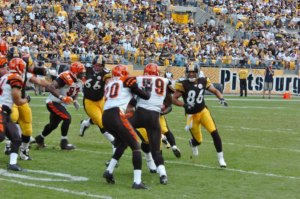The rivalry between Scotland and Hungary, though not as intense as some others, has produced some memorable matches over the years. Both nations have their unique playing styles and passionate fan bases.
A Brief History of the Rivalry
The rivalry between these two nations dates back to the early days of international football. Both teams have faced each other in various competitions, including the World Cup qualifiers and the UEFA European Championship qualifiers.
Key Matchups and Their Significance
World Cup Qualifiers: Both teams have often faced each other in the qualifying stages of the World Cup. These matches have been crucial for determining the fate of both nations in the tournament.
Friendly Matches: Scotland and Hungary have frequently played friendly matches, providing opportunities for both teams to test their abilities against each other.
Head-to-Head Statistics
While specific head-to-head statistics can vary depending on the exact time period and competitions considered, Hungary generally holds a slight advantage over Scotland.
Total Matches: Approximately 20-25 matches
Hungary Wins: Around 10-12
Scotland Wins: Around 7-8
Draws: Around 3-4
Note: These are approximate figures and may vary slightly.
Individual Performances
Kevin Csoboth (Hungary): His decisive goal in the 100th minute showcased his composure under pressure and secured Hungary’s victory.
Dominik Szoboszlai (Hungary): The captain was a constant threat throughout the match, providing the assist for the winning goal.
Angus Gunn (Scotland): The goalkeeper made several crucial saves but was involved in a severe collision that led to a lengthy delay.
Key Players and Managers
Scotland:
Andy Robertson: A world-class left-back who plays for Liverpool.
John McGinn: A versatile midfielder who can score and create goals.
Scott McTominay: A strong and physical midfielder who plays for Manchester United.
Steve Clarke: A successful manager who has led Scotland to significant achievements.
Hungary:
Dominik Szoboszlai: A talented attacking midfielder who plays for RB Leipzig.
Roland Sallai: A skillful winger who can create chances and score goals.
Tactical Analysis
Scotland:
Defensive Solidity: Scotland often employs a defensive-minded approach, focusing on solid organization and counter-attacks.
Set-Piece Threat: Scotland can be dangerous from set-pieces, with their tall and physical players.
Hungary:
Attacking Flair: Hungary is known for its attacking prowess, with players like Dominik Szoboszlai and Roland Sallai capable of scoring goals.
Possession-Based Football: Hungary often tries to dominate possession and dictate the tempo of the game.
The Impact of the Rivalry on Football Culture
While the rivalry between Scotland and Hungary may not be as intense as some others, it has still contributed to the footballing landscape. The matches between these two nations have often been passionate and competitive, providing excitement for fans.
Future Encounters
As both nations continue to develop their footballing talent, future encounters between Scotland and Hungary are likely to be exciting and competitive. While Hungary remains a strong team, Scotland’s improvement in recent years suggests that they can be a tough opponent.
Fan and Media Reactions
The Euro 2024 defeat elicited mixed reactions. Some fans expressed frustration over Scotland’s inability to progress past the group stage, while others praised Hungary’s resilience. Media outlets highlighted the tactical battle and individual brilliance displayed during the match.
FAQs
When was the most recent match between Scotland and Hungary?
The most recent match between Scotland and Hungary took place in 2022 as part of the UEFA Nations League.
What was the result of the most recent match?
Scotland defeated Hungary 1-0.
What are the future prospects for the Scotland-Hungary rivalry?
Both Scotland and Hungary have experienced periods of ups and downs in recent years. Future encounters between the two teams are likely to be competitive, with both sides aiming to secure positive results.
Deeper Dive into the Rivalry
What are the cultural and historical factors that have shaped the Scotland-Hungary rivalry?
The cultural and historical differences between Scotland and Hungary have contributed to the unique dynamic between the two nations. Both countries have a rich footballing tradition, and their encounters have often been characterized by passionate support from their fans.
How have the tactics and styles of play of the two teams evolved over time?
Both Scotland and Hungary have experienced periods of tactical evolution. Scotland has often relied on a direct and physical style of play, while Hungary has favored a more technical and possession-based approach.
What impact have key players had on the rivalry?
Several iconic players have played crucial roles in shaping the Scotland-Hungary rivalry. For Scotland, players like Kenny Dalglish and Denis Law have been instrumental. For Hungary, Ferenc Puskás and Sándor Kocsis are legendary figures.
How has the rivalry been influenced by the political climate between the two countries?
The political climate between Scotland and Hungary has not significantly impacted the footballing rivalry. The focus remains on the sporting aspect, with both nations competing for glory on the pitch.
The Impact on Fans and the Footballing World
How have fans contributed to the rivalry?
The passionate fanbases of both nations have created a vibrant atmosphere at matches, with intense chants and colorful displays. The support and enthusiasm of the fans have added to the spectacle.
How has the rivalry impacted the wider footballing world?
The Scotland-Hungary rivalry has contributed to the diversity and excitement of international football. It has showcased the different styles of play and the passion of the fans.
When was the first match between Scotland and Hungary?
The first official match between Scotland and Hungary took place on October 26, 1907. Hungary emerged victorious with a 5-1 scoreline.
What are the future implications of the rivalry?
The future of the rivalry will depend on the performance of both teams in international competitions. If both teams continue to qualify for major tournaments, we can expect more exciting clashes in the years to come.
Accordingly
The footballing history between Scotland and Hungary is characterized by closely contested matches and mutual respect. Their encounters continue to captivate fans worldwide, offering a blend of tactical intrigue and individual excellence. As both teams progress in international competitions, their rivalry is poised to deliver more memorable moments.
To read more,Click Here.





